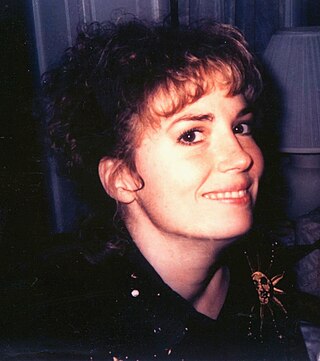Anti-psychiatry, sometimes spelled antipsychiatry without the hyphen, is a movement based on the view that psychiatric treatment is often more damaging than helpful to patients, highlighting controversies about psychiatry. Objections include the reliability of psychiatric diagnosis, the questionable effectiveness and harm associated with psychiatric medications, the failure of psychiatry to demonstrate any disease treatment mechanism for psychiatric medication effects, and legal concerns about equal human rights and civil freedom being nullified by the presence of diagnosis. Historical critiques of psychiatry came to light after focus on the extreme harms associated with electroconvulsive therapy or insulin shock therapy. The term "anti-psychiatry" is in dispute and often used to dismiss all critics of psychiatry, many of whom agree that a specialized role of helper for people in emotional distress may at times be appropriate, and allow for individual choice around treatment decisions.

There was systematic political abuse of psychiatry in the Soviet Union, based on the interpretation of political opposition or dissent as a psychiatric problem. It was called "psychopathological mechanisms" of dissent.
Peacemakers was an American pacifist organization founded following a conference on "More Disciplined and Revolutionary Pacifist Activity" in Chicago in July 1948. Ernest and Marion Bromley and Juanita and Wally Nelson largely organized the group. The name “Peacemakers” was taken from a section of the Bible, the Beatitudes or Sermon on the Mount: "Blessed are the peacemakers, for they will be called children of God." The group’s organizational structure adopted a multidivisional organizational structure with a loose hierarchy, prioritizing local committees including but not limited to the Tax Refusal and Military Draft Refusal Committee. The Peacemakers were social anarchists whose organizational beliefs are largely attributed to Marxist philosophy. Peacemakers aimed to advocate nonviolent resistance in the service of peace.
Wertheimer is an Ashkenazi Jewish surname. Notable people with the surname include:
Schachter, Schächter or Schechter is a Yiddish and German surname. Notable people with the surname include:
James or Jim West may refer to:
Earnest is a masculine given name and a surname which may refer to:

Since the founding of the Church of Scientology in 1954 by L. Ron Hubbard, the relationship between Scientology and psychiatry has been dominated by strong opposition by the organization against the medical specialty of psychiatry and of psychology with themes relating to this opposition occurring repeatedly throughout Scientology literature and doctrine. According to the Church of Scientology, psychiatry has a long history of improper and abusive care. The group's views have been disputed, criticized, and condemned by experts in the medical and scientific community and have been a source of public controversy.
The Rosenwald Fund was established in 1917 by Julius Rosenwald and his family for "the well-being of mankind." Rosenwald became part-owner of Sears, Roebuck and Company in 1895, serving as its president from 1908 to 1922, and chairman of its board of directors until his death in 1932.
William Reid may refer to:

Barbara Gittings was a prominent American activist for LGBT equality. She organized the New York chapter of the Daughters of Bilitis (DOB) from 1958 to 1963, edited the national DOB magazine The Ladder from 1963 to 1966, and worked closely with Frank Kameny in the 1960s on the first picket lines that brought attention to the ban on employment of gay people by the largest employer in the US at that time: the United States government. Her early experiences with trying to learn more about lesbianism fueled her lifetime work with libraries. In the 1970s, Gittings was most involved in the American Library Association, especially its gay caucus, the first such in a professional organization, in order to promote positive literature about homosexuality in libraries. She was a part of the movement to get the American Psychiatric Association to drop homosexuality as a mental illness in 1972. Her self-described life mission was to tear away the "shroud of invisibility" related to homosexuality, which had theretofore been associated with crime and mental illness.
William, Willie, Bill or Billy Miles may refer to:
Weiss or Weiß, also written Weis or Weisz, pronounced like "vice", is a German and Ashkenazi Jewish surname, meaning 'white' in both German and Yiddish. It comes from Middle High German wîz and Old High German (h)wīz.

Katherine Lahusen was an American photographer, writer and gay rights activist. She was the first openly lesbian American photojournalist. Under Lahusen's art direction, photographs of lesbians appeared on the cover of The Ladder for the first time. It was one of many projects she undertook with partner Barbara Gittings, who was then The Ladder's editor. As an activist, Lahusen was involved with the founding of the Gay Activists Alliance (GAA) in 1970 and the removal of homosexuality from the American Psychiatric Association's Diagnostic and Statistical Manual of Mental Disorders (DSM). She contributed writing and photographs to a New York–based Gay Newsweekly and Come Out!, and co-authored two books: The Gay Crusaders in 1972 with Randy Wicker and Love and Resistance: Out of the Closet into the Stonewall Era, collecting their photographs with Diana Davies in 2019.
Rawnsley is a family name; it may refer to:
Political abuse of psychiatry, also commonly referred to as punitive psychiatry, is the misuse of psychiatry, including diagnosis, detention, and treatment, for the purposes of obstructing the human rights of individuals and/or groups in a society. In other words, abuse of psychiatry is the deliberate action of having citizens psychiatrically diagnosed who need neither psychiatric restraint nor psychiatric treatment. Psychiatrists have been involved in human rights abuses in states across the world when the definitions of mental disease were expanded to include political disobedience. As scholars have long argued, governmental and medical institutions code menaces to authority as mental diseases during political disturbances. Nowadays, in many countries, political prisoners are sometimes confined and abused in psychiatric hospitals.
Sunday Night Safran was a weekly radio programme on Australian youth radio station, Triple J, about "religion, politics and all things ethnic." It was hosted by John Safran and Catholic priest, Bob Maguire. It ran from 2005 to 2015.
Campaign Against Psychiatric Abuse was a group that was founded by Soviet dissident Viktor Fainberg in April 1975 and participated in the struggle against political abuse of psychiatry in the Soviet Union from 1975 to 1988.
Homosexuality was classified as a mental disorder in the Diagnostic and Statistical Manual of Mental Disorders (DSM) beginning with the first edition, published in 1952 by the American Psychiatric Association (APA). This classification was challenged by gay rights activists in the years following the 1969 Stonewall riots, and in December 1973, the APA board of trustees voted to declassify homosexuality as a mental disorder. In 1974, the DSM was updated and homosexuality was replaced with a new diagnostic code for individuals distressed by their homosexuality. Distress over one's sexual orientation remained in the manual, under different names, until the DSM-5 in 2013.



